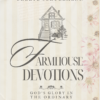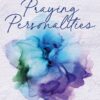Hi! I’m Kathy Ide. In addition to being a published author, I’m a full-time professional freelance editor. For CAN, I’m blogging about "PUGS"–Punctuation, Usage, Grammar, and Spelling…tips for writers based on the most common mistakes I see in the manuscripts I edit. Each blog post will have one tip for each of the four categories. (For more PUGS tips, check out my website, or get a copy of my book Polishing the PUGS (available through the website or at the conferences where I teach). If you’re interested in working with a freelance editor (or know someone who is), e-mail me through…
Category: Writing craft
This is our archive pageOh, That Zany English Language!
, by adminHello! Maureen Pratt here with another blog post about the writing art and craft. This time, some thoughts about the English language and how we might mix it up a little to yield fresh "color," insight, and depth to our work. Two real life events have inspired me to blog about this. One was a conversation I overheard in the post office. It went like this: Postal Clerk (handing Customer a pane of stamps): Here you go. Customer: Where? Here I go where? Postal Clerk: Your stamps, sir. Here you go. Customer: Where do I go? Postal Clerk (pointing at…
Research For Suspense Writing— Part IV plus Michigan Christian Writers Conference.
, by adminWelcome to the Can Blog on Writing from Gail Gaymer Martin at www.GaiGaymerMartin.com Spring brings flowers and trees heavy with blooms, a rebirth for the world, and that’s how I see writing, a rebirth of ideas born in my head but given life on paper. I hope these ideas inspire you. I have two topics today — one is the research techniques for suspense fiction and the other an invitation to a conference I’ll be keynoting along with a book signing in Owosso, MI on Saturday, May 25. Here’s the info: Mid-Michigan Christian Writer’s Conference in Owosso MI, Keynote Speaker: Gail Gaymer…
PUGS Pointers #21
, by adminHi! I’m Kathy Ide. In addition to being a published author, I’m a full-time professional freelance editor. For CAN, I’m blogging about "PUGS"–Punctuation, Usage, Grammar, and Spelling…tips for writers based on the most common mistakes I see in the manuscripts I edit. Each blog post will have one tip for each of the four categories. (For more PUGS tips, check out my website, or get a copy of my book Polishing the PUGS (available through the website or at the conferences where I teach). If you’re interested in working with a freelance editor (or know someone who is), e-mail me through the contact…
Interview Techniques for the Time-Constrained
, by adminHello and a very happy springtime to you! Maureen Pratt here with my monthly CAN blog on the Writing Craft. This time, I thought I'd go "behind the scenes" and offer some tips on conducting interviews when either you or your subject (or both) don't have oodles of time to sit and gab. Although this might seem like a narrowly focused topic, it's not. On more than one occasion, I've had to interview subjects of articles, books, or blogs and been very, very pressed for time. How do you get everything you need out of an interview that's short and, perhaps,…
Making Poems Different III
, by adminHello, I’m Donn Taylor, back again after several months of alligators up to the ears. I’m still talking about ways to achieve the “higher voltage” that distinguishes poetry from most prose. We’re still looking at ways to make your poems different from many that editors will see. Most of the new poems I’m seeing are written in the poet’s own voice, with the poet as speaker (persona) of the poem and the poet’s self as the subject. It’s safe to assume that editors will see more of that kind of poem than any other. Previously we illustrated making your poem…
Research For Contemporary Fiction IIIA
, by adminHi from Gail Gaymer Martin at www,gailgaymermartin.com Weeks seem to fly by and I’m late sending the third part of Research for Contemporary Fiction. Thought it might seem contemporary fiction is not as complex to research as historical, it is still important and can take much time, depending on the plots of the novel. While historical elements are not significant in most cases when researching contemporary, setting location can still require time-consuming research, as well researching details of the story such as medical information, how to do specific things in the plot, and so much more.
PUGS Pointers #20
, by adminHi! I’m Kathy Ide. In addition to being a published author, I’m a full-time professional freelance editor. For CAN, I’m blogging about "PUGS"–Punctuation, Usage, Grammar, and Spelling…tips for writers based on the most common mistakes I see in the manuscripts I edit. Each blog post will have one tip for each of the four categories. (For more PUGS tips, check out my website, or get a copy of my book Polishing the PUGS (available through the website or at the conferences where I teach). If you’re interested in working with a freelance editor (or know someone who is), e-mail me through the contact page…
Writing for Children Part 2–Preschool Picture Books
, by adminLast time, I posted a blog on Writing for Children (Part 1), and addressed the challenge of writing boardbooks. The next sub-genre in the genre of children’s literature is what I call the preschool picture book. This is not the 32-page picture book with a full plot and story (i.e. beginning, middle, and happy ending). The books in this category are books that consist mainly of word play. What do I mean by "word play"? Glad you asked.
Research For Historical Fiction – Part II
, by adminHi from Gail Gaymer Martin at www.gailgaymermartin.com. I'm sorry I missed the blog last month. I was staying in Sedona, AZ for two months and we'd driven back to Michigan and empty half my office into the living room and boxes of so many things we lug with us, and it took a few days to get organized. But I'm back again and happy to share more about researching for fiction. In January, I talked about Writing Fiction in general. Today I will share Part II of the information on Researching Historical Fiction.
Recent Posts
Recent Posts
Archives
- May 2024
- April 2024
- March 2024
- February 2024
- January 2024
- December 2023
- November 2023
- October 2023
- September 2023
- August 2023
- July 2023
- June 2023
- May 2023
- April 2023
- March 2023
- February 2023
- January 2023
- December 2022
- November 2022
- October 2022
- September 2022
- August 2022
- July 2022
- June 2022
- May 2022
- March 2022
- February 2022
- January 2022
- December 2021
- November 2021
- October 2021
- September 2021
- August 2021
- July 2021
- June 2021
- May 2021
- April 2021
- March 2021
- February 2021
- January 2021
- December 2020
- November 2020
- October 2020
- September 2020
- August 2020
- July 2020
- June 2020
- May 2020
- April 2020
- March 2020
- February 2020
- January 2020
- December 2019
- November 2019
- October 2019
- September 2019
- August 2019
- July 2019
- June 2019
- May 2019
- April 2019
- March 2019
- February 2019
- January 2019
- December 2018
- November 2018
- October 2018
- September 2018
- August 2018
- July 2018
- June 2018
- May 2018
- April 2018
- March 2018
- February 2018
- January 2018
- December 2017
- November 2017
- October 2017
- September 2017
- August 2017
- July 2017
- June 2017
- May 2017
- April 2017
- March 2017
- February 2017
- January 2017
- December 2016
- November 2016
- October 2016
- September 2016
- August 2016
- July 2016
- June 2016
- May 2016
- April 2016
- March 2016
- February 2016
- January 2016
- December 2015
- November 2015
- October 2015
- September 2015
- August 2015
- July 2015
- June 2015
- May 2015
- April 2015
- March 2015
- February 2015
- January 2015
- December 2014
- November 2014
- October 2014
- September 2014
- August 2014
- July 2014
- June 2014
- May 2014
- April 2014
- March 2014
- February 2014
- January 2014
- December 2013
- November 2013
- October 2013
- September 2013
- August 2013
- July 2013
- June 2013
- May 2013
- April 2013
- March 2013
- February 2013
- January 2013
- December 2012
- November 2012
- October 2012
- September 2012
- August 2012
- July 2012
- June 2012
- May 2012
- April 2012
- March 2012
- February 2012
- January 2012
- December 2011
- November 2011
- October 2011
- September 2011
- August 2011
- July 2011
- June 2011
- May 2011
- April 2011
- March 2011
- February 2011
- January 2011
- December 2010
- November 2010
- October 2010
- September 2010
- August 2010
- July 2010
- June 2010
- May 2010
- April 2010
- March 2010
- February 2010
- January 2010
- December 2009
- November 2009
- October 2009
- September 2009
- August 2009



